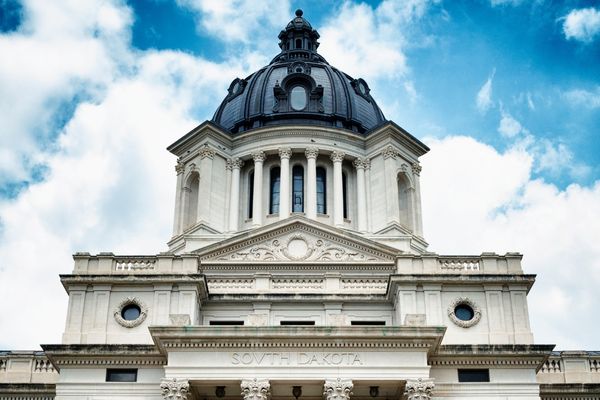
- Details
- By Native News Online Staff
South Dakota is implementing a new council to tackle the growing Missing and Murdered Indigenous Persons crisis.
South Dakota Attorney General Mark Vargo announced the formation of the Attorney General's MMIP Advisory Council on Tuesday, Jan 4. The group will advise the Attorney General on establishing goals, protocols and parameters for the A.G.'s new MMIP Office.
"The issues surrounding Missing and Murdered Indigenous Women demand attention," Tatewin Means, the former Oglala Sioux Tribe's Attorney General who is co-chair of the MMIP Advisory Council, said in a statement. "I look forward to working with MMIP Coordinator Allison Morrisette, the Council and the Attorney General in making the MMIP Coordinator efforts successful."
 Make A Monthly Donation Here
Make A Monthly Donation Here
The council is made up of various stakeholders with the goal of equal representation among constituencies. Vargo will serve as the committee co-chair.
"The MMIP initiative within the Attorney General's Office is extremely important for the state," Vargo said in a statement. "When the Legislature established the MMIP position, it left it up to the Attorney General to fill in the details. That task will be done best with input from all appropriate corners."
The council will have its first meeting on Feb 14. On Jun 30, the Council will deliver to the Attorney General a list of goals and objectives for the MMIP Coordinator. The Council will meet at least annually thereafter to receive a report from the MMIP Coordinator.
Want more Native News? Get the free daily newsletter today.
While there is a lack of comprehensive data available on MMIP, according to a 2022 Congressional Research Service Report, there were 9,560 cases involving missing or murdered Indigenous people reported in 2020 alone. According to reporting from The Rapid City Journal, while Native Americans are 9 percent of South Dakota's population, they make up 60 percent of people currently listed on the state's missing persons' clearinghouse. The oldest case dates as far back as 1976, with the most recent case as recently as Jan 4, the day the state's MMIP Advisory Council was announced.
"The Missing and Murdered Indigenous Persons Office, with the guidance of this Advisory Council, will do important work in this state," Attorney General-elect Marty Jackley said. "This is an opportunity to help those looking for answers to the fate of their family members and loved ones."
More Stories Like This
Native News Weekly (August 25, 2024): D.C. BriefsUS Presidents in Their Own Words Concerning American Indians
Native News Weekly (January 18, 2026): D.C. Briefs
Federal Judge Orders ICE to Halt Use of Pepper Spray, Arrests of Peaceful Protesters in Twin Cities
Tunica-Biloxi Cultural Leader John D. Barbry Walks On
Help us defend tribal sovereignty.
At Native News Online, our mission is rooted in telling the stories that strengthen sovereignty and uplift Indigenous voices — not just at year’s end, but every single day.
Because of your generosity last year, we were able to keep our reporters on the ground in tribal communities, at national gatherings and in the halls of Congress — covering the issues that matter most to Indian Country: sovereignty, culture, education, health and economic opportunity.
That support sustained us through a tough year in 2025. Now, as we look to the year ahead, we need your help right now to ensure warrior journalism remains strong — reporting that defends tribal sovereignty, amplifies Native truth, and holds power accountable.
 The stakes couldn't be higher. Your support keeps Native voices heard, Native stories told and Native sovereignty defended.
The stakes couldn't be higher. Your support keeps Native voices heard, Native stories told and Native sovereignty defended.
Stand with Warrior Journalism today.
Levi Rickert (Potawatomi), Editor & Publisher

